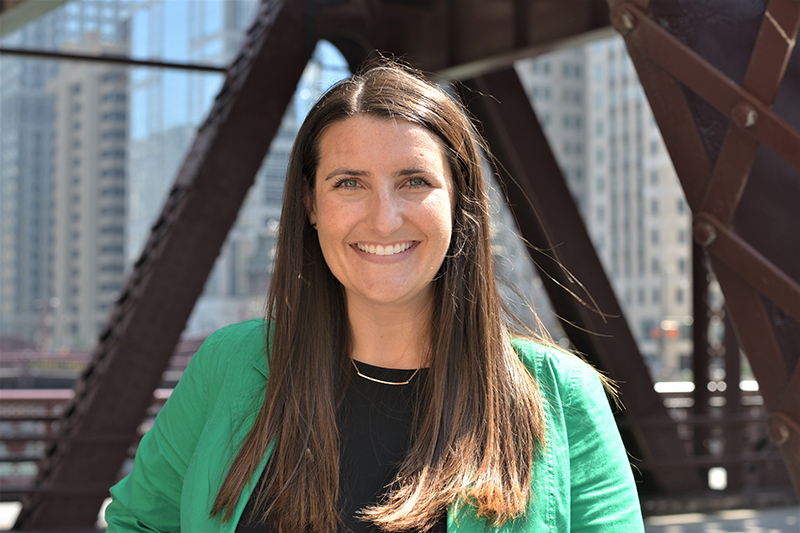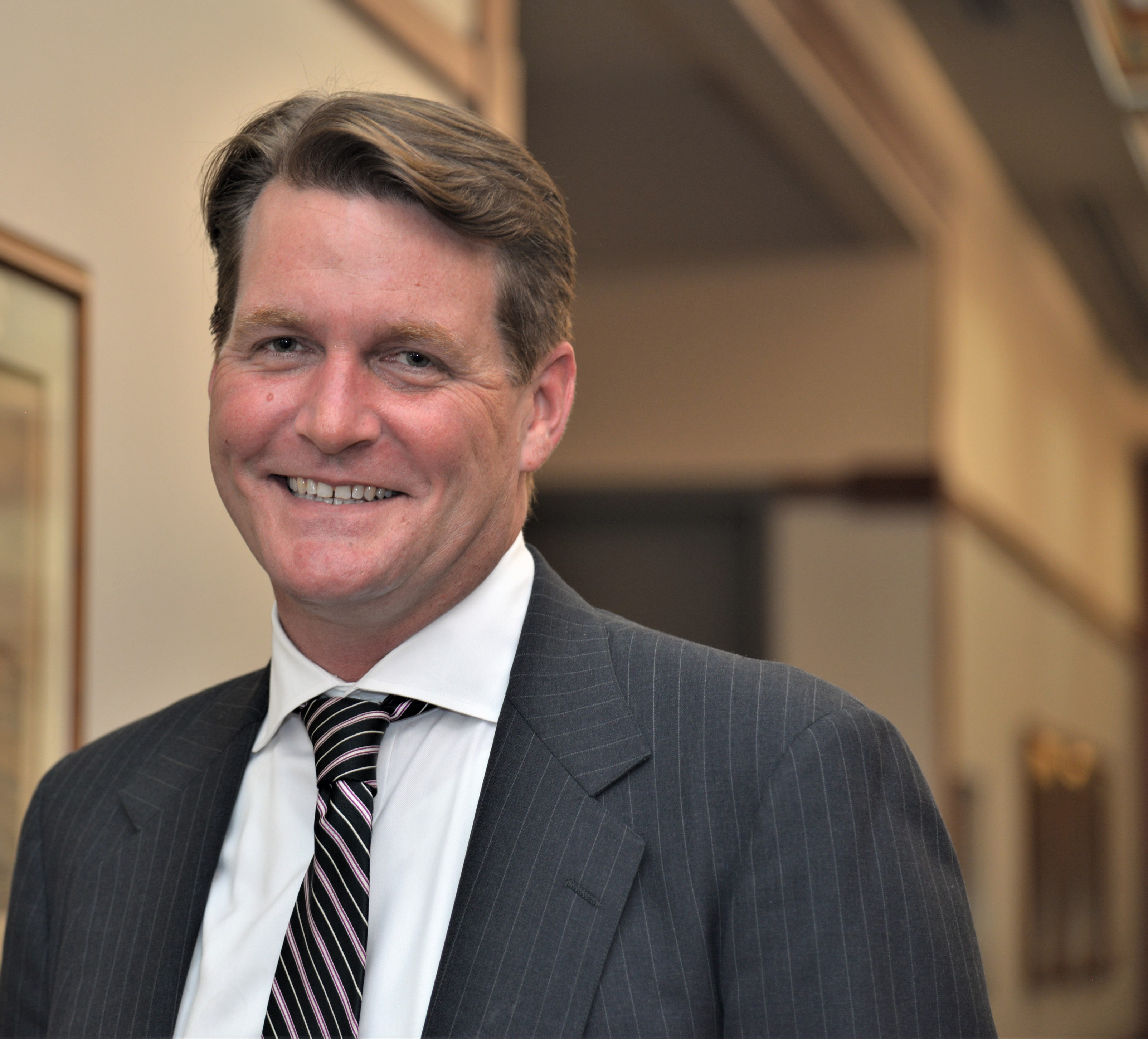 Brittany Gelsomino (MBA’17) balanced graduate school with a full-time job as manager of acquisition strategy for Discover Financial Services.
Brittany Gelsomino (MBA’17) balanced graduate school with a full-time job as manager of acquisition strategy for Discover Financial Services.When Brittany Gelsomino enrolled in DePaul’s evening MBA program, she wasn’t sure how much work it would take to balance a full-time job with school.
“I didn’t know what a balance would look like, but I went into it with an open mind,” she says.
At the time she enrolled in the
MBA in marketing strategy and planning program in 2014, she earned a promotion as manager of acquisition strategy for Discover Financial Services. Prior to enrolling in classes, she had a conversation with her boss about flexible schedule options.
“I became a lot more efficient at work with my time,,” she says. “Knowing that I had to leave at a certain time really forced me to get done what I needed to get done so that I could leave at 5 and go to class at 5:30. So, it was a huge challenge going into it but it was a great benefit coming out of it, knowing I was much more efficient at work getting what I needed to get done.”
Graduate Program Flexibility
To provide working professionals the flexibility to complete their degrees, Kellstadt offers
two evening MBA options, traditional and accelerated, and a Weekend MBA program. The weekend program is especially convenient for working professionals who are juggling their careers, family life and school, or those who have professional obligations, such as business travel, during the work week.
The weekend format is hybrid: every other week, classes take place on the DePaul Loop Campus, with the remaining classwork online. Additionally, since it is a cohort program, Weekend MBA students study with the same group of professionals in a set schedule that allows them to finish their MBAs in just two years.
For those looking for an evening work week program, “our traditional evening MBA is the ultimate in flexibility,” says Christa Hinton, director of the
Kellstadt Graduate School of Business. “Students can take one or two classes a week in the evening after work. If a student finds that they’re very busy at work in, for example, the winter quarter, they can take one class and then ramp it up to two classes in the spring quarter.”
Kellstadt’s Master of Science Programs are also offered on a part-time basis.
For Gelsomino, being able to work on class projects with fellow students who were balancing similar schedules made pursuing an MBA easier.
“Everyone in the program was kind of in the same boat,” she says. “And if I had to miss a class, our professors were understanding. There were a couple of times when I did have to miss class and materials would be sent via email. There was definitely a feeling of understanding and flexibility, knowing that people have careers and are doing this on the side.”
 Patrick Jacobs, vice president for Global and Family Offices at Northern Trust, is enrolled in the MBA in management program.Like Gelsomino, Patrick Jacobs earned a promotion when he enrolled in the MBA in management program in September 2016. Jacobs, vice president of the Global and Family Offices at Northern Trust, is part of a cohort that takes classes at the bank, one of several onsite corporate education programs recruited by DePaul’s Corporate and Employer Outreach (CEO) initiative.
Patrick Jacobs, vice president for Global and Family Offices at Northern Trust, is enrolled in the MBA in management program.Like Gelsomino, Patrick Jacobs earned a promotion when he enrolled in the MBA in management program in September 2016. Jacobs, vice president of the Global and Family Offices at Northern Trust, is part of a cohort that takes classes at the bank, one of several onsite corporate education programs recruited by DePaul’s Corporate and Employer Outreach (CEO) initiative.
“Balancing work and school really teaches you to compartmentalize,” says Jacobs, who plans to complete his degree in December 2018. “You’ll stress yourself out if you don’t. When you’re working, you’re working, when it’s time for school, time for study. And the same goes for personal life.”
Getting the Most Out of Your Education
To make balancing work and school easier, Gelsomino advises students to take challenging classes, such as economics or accounting, with “easier” classes or classes within their concentration.
Gelsomino also suggests students get the most out of the program by taking advantage of study abroad and other opportunities. During her second semester, Gelsomino travelled to Prague and Berlin for a DePaul business study abroad seminar while earning credits toward her degree.
“If you’re going to go through this program and pay for it, step out of your comfort zone and take full advantage of it,” she says.
Jacobs, who had been out of school for 11 years before pursuing his MBA, suggests students brush up on their math skills if it’s been a while since taking classes.
“Returning to school isn’t something you kind of do – it’s going to be a huge commitment, so I would say if you really want to do it, then do it,” he says. “And if you haven’t been in school for a long time, there’s going to be a learning curve again.”